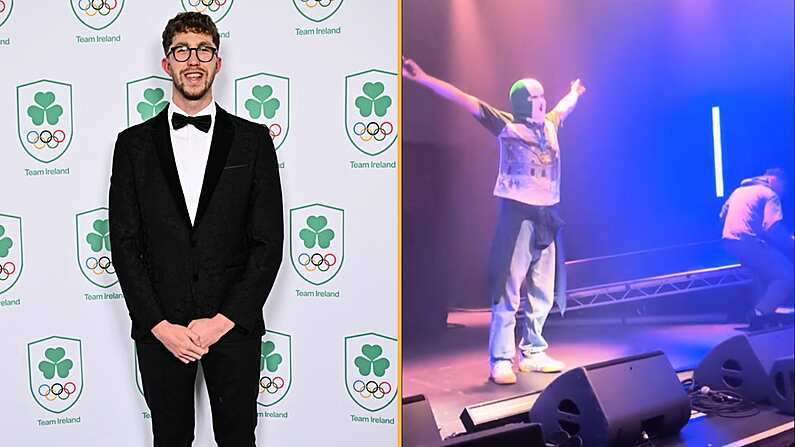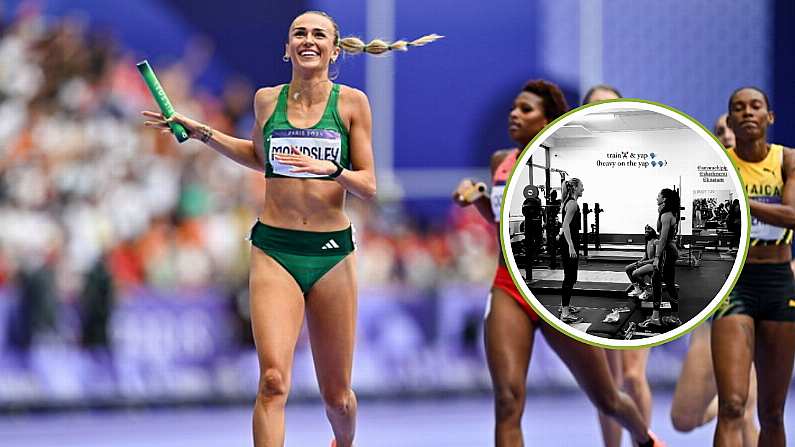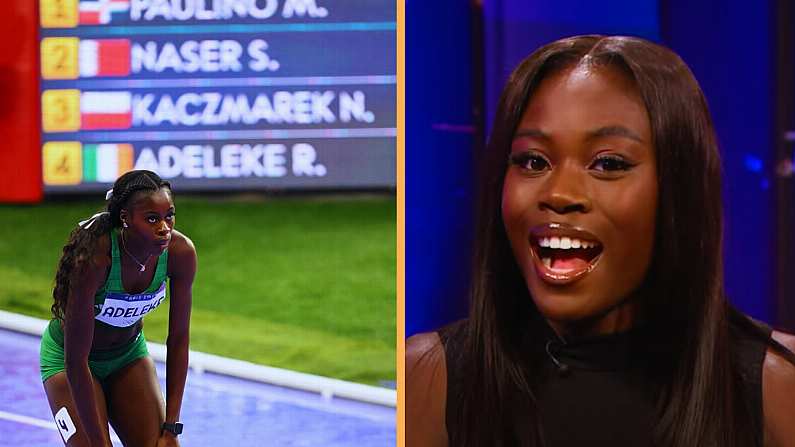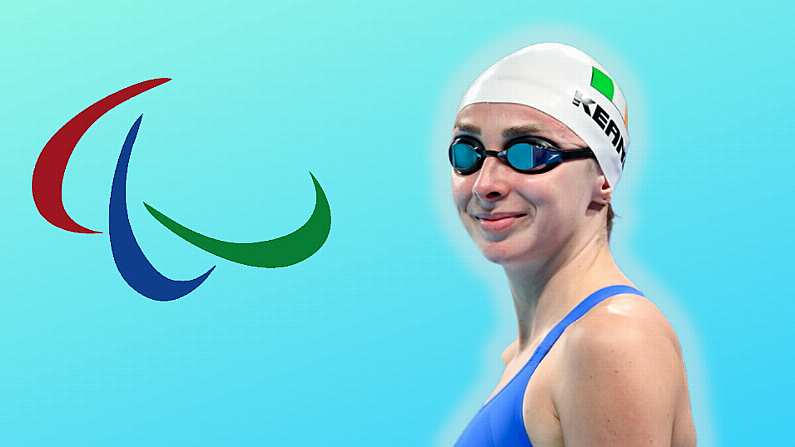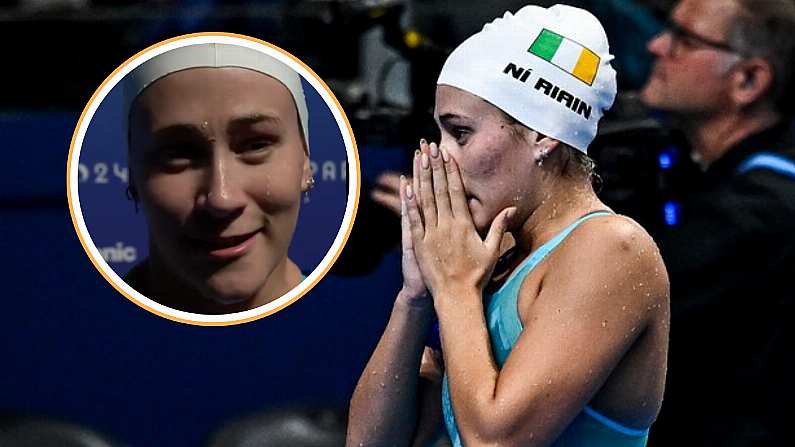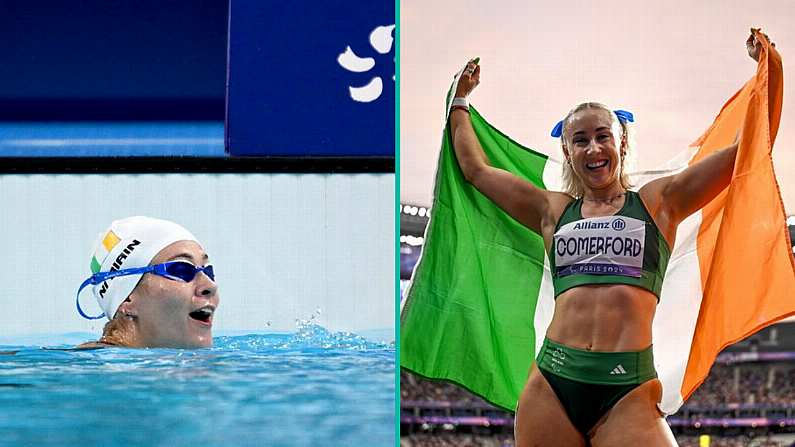With 'Hickeyleaks' having shaken the world of Irish sport, and indeed Olympic sport, to their respective cores, all sorts of stories have been surfacing about the OCI chief.
While it's important to remember that Pat Hickey hasn't at this point been found guilty of anything, it's also worth recalling how, even 20 years ago, Hickey was a 'controversial' figure within Irish sport. Indeed, David Walsh was calling for his resignation as far back as 1996.
20 years ago in piece for The Sunday Independent I wrote Pat Hickey should resign. Thanks to Dan for finding this. https://t.co/YVRk1S492I
— David Walsh (@DavidWalshST) August 18, 2016
Broadsheet.ie have dug up Walsh's column from over two decades ago, where he revealed a number of Hickey's 'suspicious' activities in his role as president of OCI - a role which he retained until yesterday.
On March 24, 1996, Walsh wrote in The Sunday Independent:
Is there anybody out there who cares?
On, Friday, March 1, the President of the Olympic Council of Ireland (OCI) Pat Hickey said that Roy Douglas, chief executive of Irish Permanent Building Society, was his personal guest at the 1990 World Cup in the US.
The trip, according to Hickey, had nothing to do with the OCI. At the time, this newspaper, wrote that Douglas’s hotel bills at the World Cup were paid by the OCI.
Hohooo. You can probably see where this is going, right?
Walsh continued:
On Tuesday morning last, March 19, Pat Hickey admitted in an RTE interview that Douglas’s hotel bills in the US were paid by the OCI. If Douglas was Hickey’s personal guest at the World Cup, why did the OCI take care of his hotel bills?
At a prestigious OCI banquet in December 1994, 48 Irish Permanent people were guests at a function where most of those present paid £30 for their tickets.
Quizzed about this unusually high representation from one company, Hickey says that the OCI were working with the Irish Permanent on a “special deal” to provide permanent headquarters for the Olympic movement in Ireland.
Around this time the OCI were also negotiating with two other companies, AIB and a Shannon-based leasing firm, for the purpose of acquiring permanent headquarters.
Neither AIB nor the leasing company were issued with anything like that number of free tickets: the AIB (official OCI sponsors then and now) got six, the leasing company did not get any.
Hickey has never offered a convincing explanation for the presence of so many Irish Permanent people at that OCI banquet.
Walsh also reveals that, even though the OCI had a marketing subcommittee, Hickey himself negotiated a sponsorship deal with Opel. This secured an Opel Omega for his own personal use until the end of the year. Not too shabby. But it goes on...
The other elements of the deal are that Opel provide visiting dignitaries with cars while they are in Ireland and Opel, through its parent company General Motors, will provide cars for the Irish team at pre-Olympic training in Fort Lauderdale and then at the Games in Atlanta.
Cars for athletes in America? Certainly a far cry from this summer in Rio.
Walsh also revealed in the Independent that Pat Hickey agreed to pay the travel and accommodation costs of then-Sports Minister Bernard Allen’s children, this while the Minister was on OCI business in Atlanta in Easter of '95. Incredibly, the OCI also foot the bill for flights for the minister’s private secretary Austin Mallon AND his wife.
Said Walsh:
Hickey insists that the ‘expenditure’ on the Minister’s family was miniscule and that ‘the rewards’ were great but what matters here is not the amount but the principle.
Funded by the taxpayer, the OCI should not be paying for the flights of the Minister’s children and,the Minister should not have allowed it to happen.
In other democracies, this would lead to resignations but not everyone here is overly concerned.
A couple of paragraphs later, however, it dawns on you how incredible it is that Hickey survived in his position for as long as he did. "A battler," as described by Walsh 20 years ago, Hickey saw off the challenges of two fellow OCI members who were attempting to force his resignation.
That Hickey’s position as OCI president has been undermined by the events and disclosures of the last three months is beyond dispute. Whether he remains on as OCI president is less certain.
His future is in the hands of his own executive committee and in the 28 Olympic federations that he serves. Whatever happens, the Olympic Council of Ireland has been greatly damaged by the current controversies.
Hickey is a battler and in the business of sports politics he is a survivor. Balbirnie and O’Connell, however, have pledged to continue with their fight within the OCI’s executive committee until Hickey resigns.
Needless to say that didn't end particularly well for Balbirnie and O'Connell; a 27-9 vote in Hickey's favour came to pass at the OCI's AGM the following October. It was the first time in the history of the council that an outgoing president ran opposed.
To read Walsh's fascinating full article, head to Broadsheet.ie. It's also worth noting that Hickey was the first man to send Walsh a legal writ, followed by over 20 more, before the OCI chief's legal team asked for an adjournment in court.







